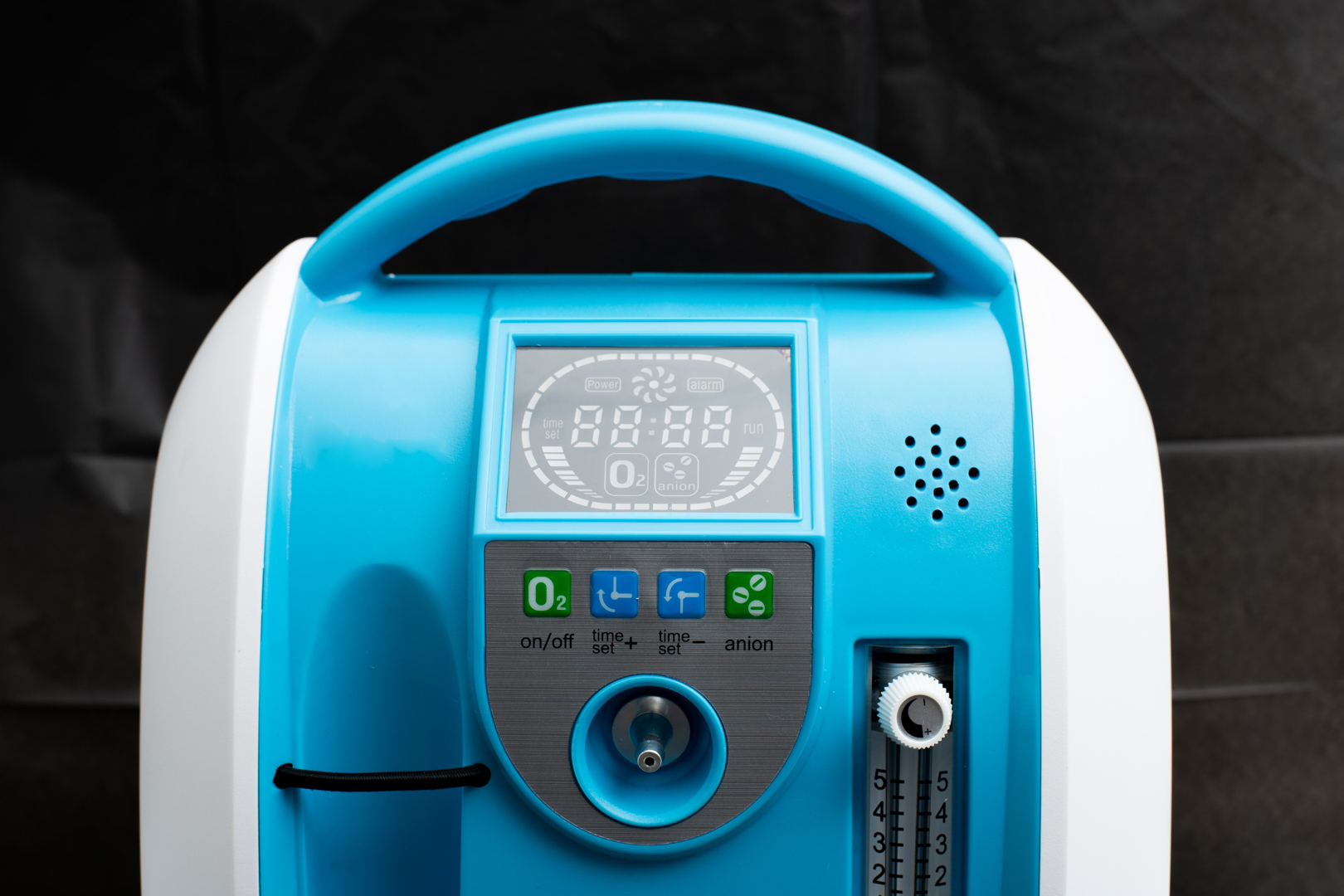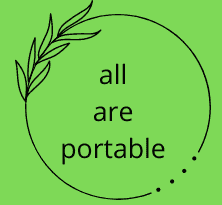Melvin is an expert for portable products.The site is for sharing everything about portable products for online buyers.
The portable oxygen concentrator (POC) is considered durable medical equipment (DME) that your doctor prescribes for use in the home. POCs are covered by Medicare Part B under the Durable Medical Equipment benefit, but only if they’re used to treat a condition that would require oxygen therapy if you weren’t using a POC. The cost of renting or buying a POC may be covered by Medicare, Medicaid, or private insurance.
Some manufacturers also offer financing options to help with the cost of purchasing a POC outright.
If you have Medicare, you may be wondering if it will cover the cost of a portable oxygen concentrator (POC). The good news is that Medicare does provide coverage for POCs, as long as they are medically necessary. This means that your doctor must prescribe one for you in order for Medicare to pay for it.
There are a few different types of POCs that Medicare will cover, so be sure to check with your doctor to see which one is right for you.

Credit: medicareu.com
How Do I Qualify for a Portable Oxygen Concentrator?
There are a few things that you need to take into account when wondering how to qualify for a portable oxygen concentrator. First, you must have a prescription from your doctor in order to get one. Secondly, your insurance may cover the cost of the device, but you will need to check with them beforehand.
Lastly, you may also be able to rent or purchase a used device from another individual.
Does Insurance Pay for Inogen Oxygen?
Assuming you are referring to health insurance, the answer is typically yes. Most health insurance plans will cover the cost of Inogen oxygen therapy. However, it is always best to check with your specific insurance provider to be sure.
Some insurance providers may require that you get prior approval before they will cover the costs.
How Much are Portable Oxygen Concentrators?
Portable oxygen concentrators (POCs) are devices that concentrate the oxygen in the air around them to provide pure, breathable oxygen to users. POCs come in a variety of shapes and sizes, and their prices can vary depending on the features they offer.
The most basic POCs start at around $500, while more advanced models with additional features can cost upwards of $2,000.
Some insurance companies will cover the cost of a POC if it is prescribed by a doctor, but others may only reimburse part of the cost.
Does Medicare Cover Portable Oxygen Batteries?
If you have Medicare and need a portable oxygen battery, you’re in luck. Medicare will cover the cost of renting or buying a portable oxygen battery as long as it’s medically necessary for your care. That said, there are some caveats to be aware of.
First, if you’re renting a portable oxygen battery, Medicare will only cover the cost of renting for up to 36 months. After that, you’ll be responsible for the full cost of the rental. Second, if you decide to purchase a portable oxygen battery, Medicare will only cover 80% of the costs associated with the purchase.
You’ll be responsible for paying the remaining 20%.
Does Medicare Cover Inogen Oxygen Concentrators?
Free Portable Oxygen Concentrator
If you or a loved one has COPD, emphysema, or pulmonary fibrosis, you know that portable oxygen concentrators (POCs) can make a big difference in your quality of life. POCs are small, lightweight machines that concentrate the oxygen in the air around you and deliver it to you through a nasal cannula. Because they’re portable, POCs give you the freedom to go where you want, when you want – without having to worry about lugging around heavy tanks of oxygen.
There are many different types and brands of POCs on the market today. So how do you choose the right one for you? The first step is to talk to your doctor about your specific needs.
Once you have a prescription for oxygen therapy, your next task is to find a reputable supplier who can help you select the right POC for your lifestyle.
When shopping for a POC, keep in mind that not all models are created equal. Some are designed for use at home while others are made specifically for travel.
There are also those that can be used both at home and on the go. Be sure to ask about features like battery life, weight, noise level (some can be quite loud), and warranty before making your final decision.
Once you’ve found the perfect POC for your needs, it’s important to learn how to use it properly and take good care of it.
Most suppliers will provide training on how to operate your new machine. It’s also crucial to clean and maintain your POC according to manufacturer instructions in order to prevent infection or damage. With proper care and regular servicing by authorized personnel, your POC should give years of service and improve your quality of life immeasurably!
Does Medicaid Cover Portable Oxygen Concentrators
Most people are familiar with the traditional oxygen tank that is often used in hospitals. However, portable oxygen concentrators (POCs) are a newer technology that allows patients to receive oxygen therapy at home or on the go. POCs are small, lightweight devices that can be carried in a backpack or purse.
They work by taking in air from the surrounding environment and concentrate it into pure oxygen.
Medicaid is a state and federal program that provides health insurance coverage for low-income individuals and families. Medicaid coverage varies from state to state, but most states cover POCs for eligible patients.
To find out if your state covers POCs, contact your local Medicaid office or visit www.medicaid.gov.
How Much Does Medicare Pay for Inogen
If you or a loved one is living with chronic lung disease, you may be wondering how much Medicare will cover for Inogen oxygen equipment. While Original Medicare (Parts A and B) does not cover the cost of oxygen therapy equipment, there are some ways that you can get coverage.
Inogen is a portable oxygen concentrator (POC) that can provide on-demand oxygen therapy.
POCs are small, lightweight devices that draw in ambient air and convert it into concentrated oxygen. They are an alternative to traditional home oxygen tanks and can offer more flexibility and independence for people with lung disease.
While Medicare does not cover the cost of POCs like Inogen, they may cover the cost of renting or leasing the device.
Part B of Medicare covers 80% of the lease or rental costs after you meet your annual deductible ($185 in 2019). You will be responsible for the remaining 20% plus any applicable coinsurance or copayments. If you have a Medigap policy, it may help cover some of these out-of-pocket costs.
In addition to leasing or renting a POC through Medicare, you may also be able to purchase one outright. Some private insurance plans offer coverage for POCs, so it’s worth checking with your insurer to see if they offer any discounts on Inogen devices. You can also use Medicaid to help pay for a POC if you qualify based on your income and assets.
If you’re considering using Inogen oxygen therapy, be sure to check with your doctor to see if it’s right for you and find out what type of coverage your insurance plan offers before making any decisions.
How Much Does It Cost to Rent a Portable Oxygen Concentrator
If you or a loved one require oxygen therapy, you may be wondering how much it will cost to rent a portable oxygen concentrator (POC). While the price of POCs can vary depending on the make and model, as well as the rental company, there are some general guidelines you can follow. Here’s a look at what you can expect to pay for a POC rental.
The average cost of renting a POC for one month is around $200. However, prices can range from $100-$400 per month depending on the type of machine you rent and the rental company you use. Many insurance companies will cover the cost of renting a POC, so be sure to check with your provider before making any final decisions.
If you need a POC for an extended period of time, such as several months or years, most rental companies will offer discounts. For example, many companies offer a 10-15% discount if you prepay for six months in advance. Some companies also offer monthly payment plans to make things more affordable.
In addition to the monthly rental fee, there may be other costs associated with using a POC. These can include shipping fees (if applicable), replacement filters (which should be changed every few months), and batteries (if using a battery-powered POC). Be sure to ask about all potential costs upfront so there are no surprises later on.
Overall, renting a portable oxygen concentrator is generally very affordable – especially when compared to buying your own machine outright. With that said, costs can vary depending on factors like the type of machine rented and how long it’s needed for. By doing your research and working with your insurance provider, you can ensure that you get the best possible deal on your POC rental.
Conclusion
Yes, Medicare does cover portable oxygen concentrators. If you have a qualifying condition, such as COPD, emphysema, or pulmonary hypertension, Medicare will cover the cost of a portable oxygen concentrator. You will need to get a prescription from your doctor and have it filled by a durable medical equipment supplier.

Melvin is an expert for portable products.The site is for sharing everything about portable products for online buyers.

